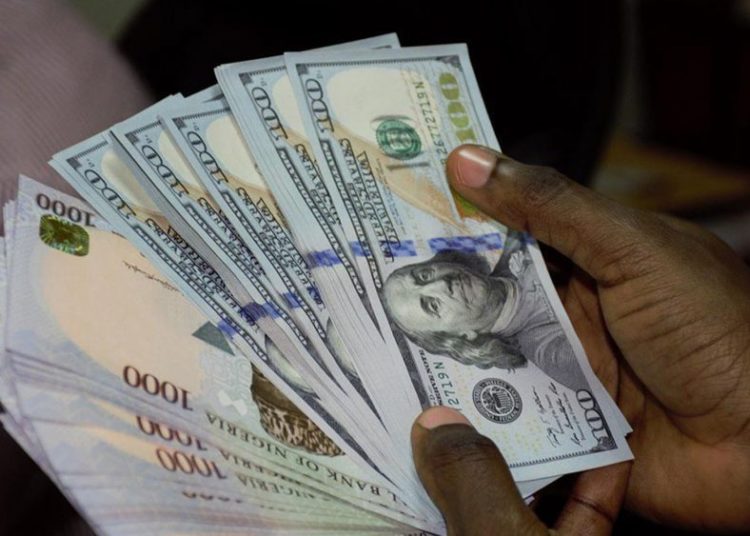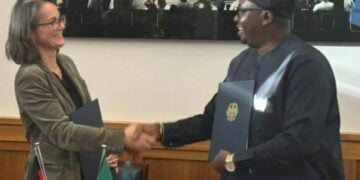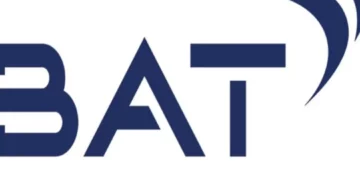With Nigeria’s external reserves recording a $220.04 million accretion last week to $38.84 billion as at June 20, 2022, analysts have stressed the need for the country to address the multiple exchange rates in the country as a way to attract investors and increase dollar inflow.
The value of the naira had been depreciating at the parallel market, selling at N615 to the dollar while it closed at the Investors’ and Exporters’ window at N420.21 to the greenback. As at June 23, inflow at the I&E window was $427.94 million, a 25.5 per cent decline compared to the previous week, with trades consummated within the N410.00 and N453.55 to the dollar.
According to senior analyst at FXTM, Lukman Otunuga, the multiple exchange rate in the country is a challenge that discourages investors.
“Lower oil revenues and falling foreign exchange reserves are forcing Nigeria to ration dollars. The negative impacts continue to be reflected across the economy and local currency. But now the dollar shortages have attracted the attention of MSCI Inc. which is considering downgrading the MSCI Nigeria indexes to the status of a standalone market from frontier markets.
“It is worth keeping in mind that a developed market is the highest ranking, followed by emerging markets, frontier markets, and then finally standalone markets at the bottom. Given the difficulty in repatriating funds from Nigeria, this has placed the MSCI Nigeria Indexes in the crosshairs.
“Such a negative development may hit sentiment toward the county’s assets at a crucial period where economic growth remains fragile.” Otunuga noted.
Also, analysts at Cordros Research, said, there is need to close the gap at the various segments of the market which has stretched to nearly N200.
President Muhammadu Buhari, had recently justified the stance of the Central Bank of Nigeria (CBN) on exchange rate management, saying, the administration cannot unify the naira exchange rates because due the effects an adjustment would have on the citizens of the country.
On why the country has not yielded to calls by the International Monetary Fund(IMF) and World Bank to unify the exchange rates at the official and parallel markets, he said: “the exchange rate is still susceptible to external shocks that can suddenly and severely affect Nigerian citizens.”
According to him, the country will move toward unification only after raising domestic production of refined fuel and food, as import items largely responsible for foreign exchange shortages. “As we step up domestic production – both in fuel (enabled by PIA) and food (agricultural policies) – the inflationary threat shall diminish, and we can move toward unification,” he said.
While the CBN continues to dip into the external reserves in its effort to support the value of the Naira, analysts say, it only a short term measure as more inflow is needed to meet demand.
Analysts at Cordros notes that, although the CBN has enough liquidity to support the foreign exchange market over the short term, “we highlight that foreign inflows are paramount for sustained forex liquidity over the medium term.
“Considering the tepid accretion to the reserves given the low crude oil production level and elevated PMS under-recovery costs, foreign portfolio investments which have historically supported supply levels in the I&E window will be needed to sustain forex liquidity levels in the medium to long term.
“Hence, we think further adjustments in the naira to dollar peg closer to its fair value and flexibility in the exchange rate would be significant in attracting foreign inflows back to the market.”
The CBN governor, Godwin Emefiele had recently harped on the need to boost inflow not majorly from investors but from non-oil export potentials of the country.
Earlier this year, the apex bank had kicked off the RT200 programme which seeks to drive $200 billion inflow into the country within the next three to five years.
While the goal of $200 billion non export earnings may seem unattainable to some at the moment, the CBN governor is quite optimistic of meeting target over the next three to five years, saying, ‘I am resolute and determined that we can achieve it’.
According to the CBN governor, the programme was borne out of the realisation that most of our current sources of foreign exchange inflows were unreliable, and perennially prone to exogenous vicissitudes of global economic developments.
“We have all been witnesses to the ever-changing fortunes of oil-exporting countries. Even those that have been reputed to manage their oil proceeds well also suffer from major shocks once oil prices plummet. In order to avoid these sudden adjustments to our economic life, we needed to focus on strategies that can help us earn more stable and sustainable inflows of foreign exchange. We would need to follow the best practices of other countries and ensure that we protect ourselves a little bit from factors that are beyond our immediate control.
“Many countries that are much less endowed than Nigeria are doing it. Consider for example that agriculture exports alone from the Netherlands was about $120 billion last year. Yet, Netherlands has a land mass of about 42,000 square kilometers, which is much smaller that the land mass of Niger State alone, which sits on over 76,000 square kilometers.”
pressed confidence that the decisions reached at the end of the summit will be invaluable in helping us reach our ultimate goal of $200 billion in non-oil exports over the medium term.”





